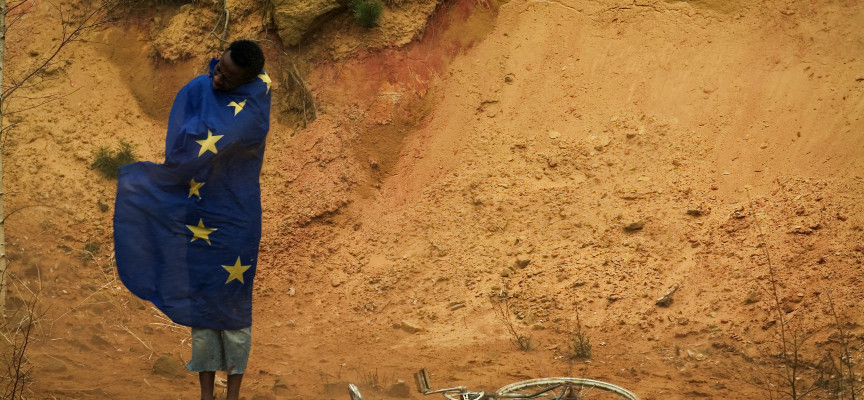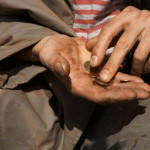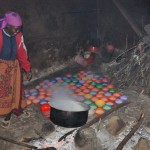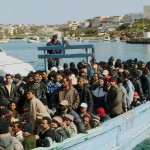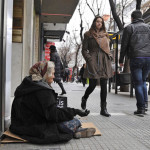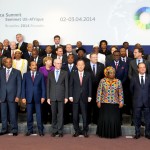What can this Europe give to Africa and other developing countries? It is not the first time that I pose this question considering the many debates that, in recent years, have multiplied on the issue of cooperation to development. A topic which is particularly sensitive in a continent that, despite the economic crisis, is still the largest donor in the world: if we look at 2013, as a whole, the European Union and its Member States have provided more than half of what the Organisation for Economic Cooperation and Development (OECD) defines as “public aid for development,” for a total amount of 56.5 billion Euro, which corresponds to about 0.43% of EU’s GDP. But this is not the issue on which I would like to focus; I would rather look at the theme of development policies. A few days ago Caritas Europa, an organization that gathers the different Caritas agencies in European countries, has published a report on poverty in the continent. The resulting picture only confirms what many have been saying since long ago: Europe – because of the economic crisis or, perhaps, on the pretext of the economic crisis – is increasingly becoming an unequal society characterized by a widening gap between the rich and the poor. Within the European Union – we read in the report – one person in four is at risk of poverty (24.5% to be precise), i.e. 122.6 million of European citizens. This figure rises to one person in three in the seven countries which are defined as “weak”: Greece, Spain, Italy, Portugal, Ireland, Romania, and Cyprus.
We are talking about the very same European Union which, for years, has been calling on African governments and societies to work for social inclusion, so that the economic growth of the last decade may turn into a real improvement of the living conditions of the population, beginning with the lower classes. Although it is true that in some African countries a potential “middle class” is timidly gaining ground, in many other countries only the elite has benefited from the revenue produced by the exploitation of raw materials (as in the case of Angola and Nigeria) and from the growth of foreign investment.
This is why, when looking at the figures provided by Caritas Europa, you may wonder whether Europe is “africanizing” itself.
The Lisbon Strategy 2020 was intended to reduce the number of the poor in Europe to 96.4 million: a reduction of 20 million people. On the contrary, the number of the poor, in recent years, has increased. With all due respect to those who continue to export their own models of development, without realizing how sick they are indeed.
Cosa ha da dare questa Europa all’Africa e agli altri Paesi in via di sviluppo? Non è la prima volta che mi pongo questa domanda pensando ai tanti dibattiti che, in questi anni, si sono moltiplicati sul tema degli aiuti allo sviluppo. Un argomento particolarmente sentito in un continente che, nonostante la crisi economica, continua ad essere il principale donatore del mondo: se guardiamo al 2013, nel suo insieme, l’Unione europea e i suoi Stati membri, hanno fornito oltre metà di quello che l’Organizzazione per la cooperazione e lo sviluppo economico (Ocse) definisce “aiuto pubblico allo sviluppo”. Per un valore complessivo di 56,5 miliardi di euro; una cifra pari a circa lo 0,43% del Pil europeo. Ma non è questo il tema su cui vorrei concentrare la mia attenzione, vorrei piuttosto guardare al tema delle politiche di sviluppo. Pochi giorni fa Caritas Europa, organizzazione che raduna le Caritas dei diversi Paesi europei, ha pubblicato il rapporto sulla povertà nel continente. Il quadro che ne è emerso non fa che confermare quanto, da più parti, si va ripetendo da tempo: l’Europa – complice la crisi economica o, forse, prendendo a pretesto la crisi economica – sta sempre più diventando una società diseguale che vede allargarsi la forbice tra ricchi e poveri. All’interno dell’Unione europea – si legge nell’indagine – una persona su 4 è a rischio povertà (per l’esattezza il 24,5%) ovvero 122,6 milioni di europei. Una percentuale che sale a una persona ogni tre nei sette Paesi definiti come “deboli”: Grecia, Spagna, Italia, Portogallo, Irlanda, Romania e Cipro.
Stiamo parlando di quella stessa Unione europea che, da anni, invita i governi e le società africane a lavorare per l’inclusione sociale perché la crescita economica dell’ultimo decennio si tramuti in un reale miglioramento delle condizioni di vita della popolazione, a partire dai ceti più bassi. Perché se è vero che in alcuni Paesi dell’Africa si sta facendo strada – timidamente – l’abbozzo di una futura “classe media” in molti altri sono le élite ad aver beneficiato degli introiti derivanti dallo sfruttamento delle materie prime (penso ad Angola e Nigeria) e della crescita degli investimenti esteri.
E’ per questo che, di fronte ai dati forniti da Caritas Europa, viene da chiedersi se non sia l’Europa che si stia “africanizzando”.
La strategia di Lisbona 2020 aveva come obiettivo quello di ridurre il numero di poveri in Europa a 96,4 milioni: ovvero 20 milioni in meno. I poveri – in questi anni – sono invece aumentati. Con buona pace di chi continua a voler esportare i propri modelli di sviluppo, senza accorgersi di essere a sua volta malato.
Michele Luppi
www.africaeuropa.it
Latest posts by Michele Luppi (see all)
- How can Europe do that? - 16 aprile 2016
- A raw nerve in european consciousness - 23 luglio 2015
- The cry of the dead of Garissa - 18 aprile 2015

